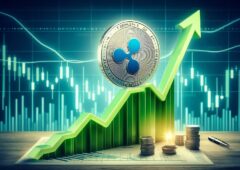Dubai Pilots Tokenized Real Estate, Opening Doors to Retail Property Investment
27.05.2025 13:00 1 min. read Alexander Stefanov
Dubai is piloting the Middle East’s first regulated tokenized property program, signaling its intent to lead real-world asset tokenization in the region.
The project enables UAE residents to buy digital shares of local properties, starting at just 2,000 dirhams ($545), through a newly launched platform called Prypco Mint.
The initiative is a joint effort involving the Dubai Land Department, the Central Bank, and the Dubai Future Foundation. While the pilot limits purchases to dirham-only transactions and UAE ID holders, plans for global expansion are already in motion.
Backed by updated rules from Dubai’s crypto regulator VARA—now allowing real estate tokens to be traded on secondary markets—the project reflects Dubai’s broader ambition to enhance liquidity and accessibility in its real estate sector.
This move comes amid a regional surge in crypto activity. The UAE has seen a sharp rise in app downloads, and Dubai recently partnered with Crypto.com to explore digital payments for public services.
Globally, real estate tokenization is gaining momentum. Analysts forecast the sector could grow to $19.4 billion by 2033, with blockchain offering a path to fractional ownership of traditionally illiquid assets. While some startups like RealT have led the charge, others face regulatory roadblocks—something Dubai is actively working to overcome with government support and clear policy frameworks.
-
1
Ethereum Begins Quiet Shift From Hype to Financial Backbone
09.06.2025 21:00 1 min. read -
2
Tether Rolls Out Cross-Chain Gold Token on TON
03.06.2025 22:00 1 min. read -
3
Ripple Boosts Blockchain Education Across Asia-Pacific
11.06.2025 8:00 2 min. read -
4
Tether-Backed Blockchain Aims to Serve Financial Giants
08.06.2025 13:00 2 min. read -
5
Malaysia Opens the Door to Blockchain Experimentation With Launch of Innovation Hub
18.06.2025 22:00 2 min. read
Malaysia Opens the Door to Blockchain Experimentation With Launch of Innovation Hub
In a move to strengthen its position in the regional fintech race, Malaysia has unveiled a new digital sandbox aimed at nurturing innovation in blockchain and digital finance.
Binance Prepares for THORChain Upgrade, Temporarily Halts RUNE Transfers
Binance has confirmed it will facilitate the upcoming upgrade of the THORChain (RUNE) network, aiming to ensure a seamless transition for users during the blockchain’s scheduled improvements.
JPMorgan Lays Groundwork for Tokenized Finance with New Blockchain Trademark
JPMorgan Chase has filed a new trademark application for “JPMD,” signaling its intent to expand deeper into blockchain-based financial services.
Israel vs. Iran: Who Really Leads the Middle-East Blockchain Race?
Middle-East crypto adoption tells an unlikely story: Iran is setting the pace on raw user growth, while Israel dominates the engineering side.
-
1
Ethereum Begins Quiet Shift From Hype to Financial Backbone
09.06.2025 21:00 1 min. read -
2
Tether Rolls Out Cross-Chain Gold Token on TON
03.06.2025 22:00 1 min. read -
3
Ripple Boosts Blockchain Education Across Asia-Pacific
11.06.2025 8:00 2 min. read -
4
Tether-Backed Blockchain Aims to Serve Financial Giants
08.06.2025 13:00 2 min. read -
5
Malaysia Opens the Door to Blockchain Experimentation With Launch of Innovation Hub
18.06.2025 22:00 2 min. read


